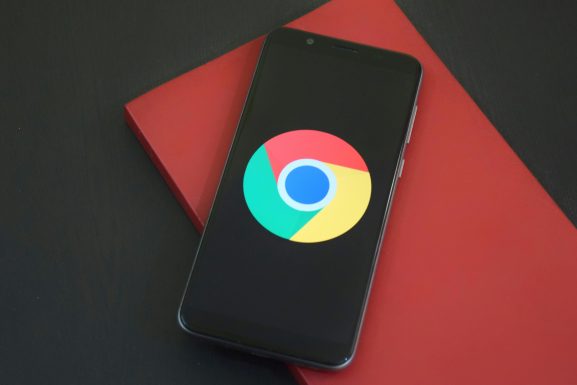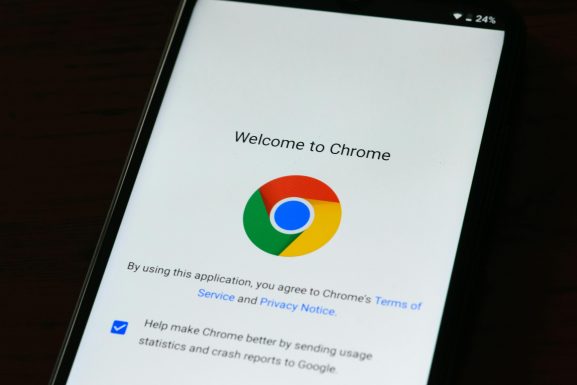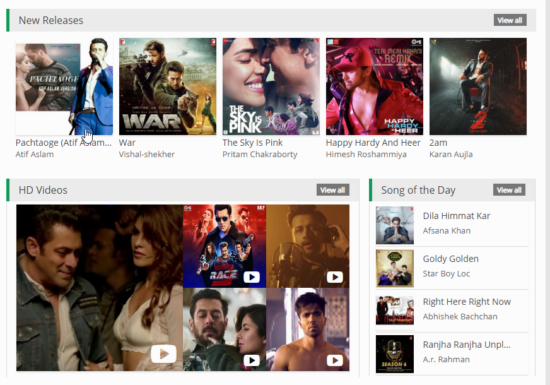Imagine you’re deep into your online research, with tabs bursting at the seams and ideas flowing like a river. Suddenly, your screen flickers violently, as if it’s struggling to keep pace with your intellectual fervor. Frustration mounts as you wonder: why is Chrome causing my screen to flash? You’re not alone in this digital dilemma; countless users have found themselves grappling with this perplexing issue that disrupts productivity and sows seeds of anxiety.
In an age where seamless browsing is synonymous with efficiency, any glitch can feel like a personal affront. The reasons behind these startling flashes can range from innocuous software updates to more insidious hardware conflicts. But fear not! This article will dive into the intricate world of browser behavior and graphical performance, unraveling the mysteries behind those jarring interruptions. Whether you’re a casual surfer or a seasoned web warrior, understanding what’s at play could save you from future frustrations—and restore harmony to your digital realm.
Common Causes of Screen Flashing
All Heading
Screen flashing can arise from a variety of common culprits, especially when navigating resource-intensive applications like Chrome. One significant factor is the interaction between hardware and software, often seen when graphics drivers are outdated mismatched with current web standards. These discrepancies lead to rendering issues that manifest as flickers or sudden screen changes. Regularly updating your GPU drivers can mitigate these glitches, creating a smoother browsing experience.
Another overlooked element is the configuration of Chrome’s hardware acceleration feature. While it aims to improve performance by offloading tasks to your computer’s GPU, an incompatible setup can cause erratic behavior, including screen flashes. Disabling this option might resolve the issue for users facing persistent problems. Additionally, extensions can interfere with how web content is displayed; some poorly designed add-ons may conflict with Chrome’s rendering process and contribute to visual instability. Regularly reviewing and managing your extensions is crucial in maintaining optimal browser functionality and avoiding potential screen flickers.
![]()
Extensions and Their Role
Extensions are integral to the Chrome experience, enhancing functionality and personalizing browsing. However, these seemingly innocent add-ons can lead to unexpected issues, including screen flashing. Many users may overlook that a single poorly optimized extension might conflict with the browser’s rendering engine or other installed extensions, triggering visual anomalies. As developers push for innovation in their tools, it’s essential to remember that not every update guarantees compatibility or stability.
Moreover, the intricate web of interdependencies between extensions can create a cascade of effects—where one extension’s failure impacts others down the line. Keeping your library of extensions lean can mitigate these risks; consider culling those you rarely use or have found buggy over time. Regularly reviewing and updating your installed extensions is crucial as well; outdated code may lack necessary performance enhancements that newer Chrome versions implement. By actively managing your digital toolkit, you enhance both your browsing experience and protect against unpredictable glitches like screen flashing.
Graphics Driver Considerations
When grappling with an issue like screen flashing while using Chrome, often overlooked are the nuances of graphics driver compatibility. It’s essential to recognize that graphics drivers serve as a bridge between your operating system and hardware, translating commands into visual outputs. An outdated or improperly configured driver can lead to erratic behavior not just in Chrome, but across all applications that require graphical rendering. Regular updates from manufacturers address bugs and introduce optimizations that can dramatically improve performance and stability.
Moreover, considering the specific GPU architecture you’re using opens another layer of insight. Different brands—such as NVIDIA, AMD, or Intel—offer unique features in their drivers which can affect how programs handle rendering tasks under various conditions. For example, enabling hardware acceleration within Chrome may enrich your browsing experience but could also clash with specific GPU settings if they aren’t aligned properly. A careful examination of these settings provides a vital opportunity to enhance system fluidity and diminish flickering screens.
Finally, it’s worth engaging in community forums or support channels when troubleshooting persistent driver-related issues. User experiences vary widely; other users may have faced similar problems but found innovative workarounds through tailored settings or alternative configurations not immediately apparent through standard troubleshooting steps. Sharing insights and strategies can pave the way for better understanding our systems’ dynamics—and who knows? Your contribution might just help someone else sidestep frustrating graphical glitches altogether!

System Resource Management
System resource management plays a crucial role in the overall performance and stability of your device, especially when using resource-intensive applications like Chrome. When multiple tabs are opened or various extensions are running simultaneously, Chrome can consume an inordinate amount of CPU and RAM. This level of consumption not only slows down the browser but can also lead to unexpected behavior, such as screen flashing or graphical glitches. Understanding how to manage these resources effectively can transform not just your browsing experience but also your entire system’s responsiveness.
Monitoring background processes is essential for maintaining seamless operation. Tools like Task Manager on Windows or Activity Monitor on macOS allow users to identify which programs are hogging memory and processing power. By closing inactive tabs, disabling unnecessary extensions, or even scheduling regular maintenance tasks, you can alleviate the strain on your system. Additionally, utilizing lightweight browser alternatives for less demanding tasks may offer a more stable user experience without compromising functionality.
By implementing proactive resource management strategies, you prevent potential disruptions that could stem from high resource usage—ensuring a smoother interaction with Chrome and reducing incidents that cause screen flickering. Being mindful of how software interacts with hardware creates an environment where technology serves you better; it allows for efficient multitasking while minimizing frustrations often encountered during intense online sessions.
Browser Settings Adjustments
Adjusting your browser settings can be a game-changer when it comes to eliminating screen flashing issues in Chrome. One of the first places to explore is the hardware acceleration setting. While this feature enhances performance by utilizing your computer’s GPU, it can sometimes lead to graphical glitches or flickering, especially on older systems or incompatible graphics drivers. Disabling hardware acceleration may resolve these disturbances; simply navigate to Settings > Advanced > System and toggle off Use hardware acceleration when available.
Additionally, reviewing your extensions could unveil hidden culprits contributing to screen flickering. Extensions designed for ad-blocking, page optimization, or even styling alterations might conflict with existing website scripts leading to visual inconsistencies. Temporarily disabling each extension one by one can help pinpoint the source of the problem and restore smooth operation.
Finally, ensuring that Chrome is up-to-date should not be overlooked as an essential step. Google frequently releases updates that include bug fixes and compatibility improvements. You can easily check for updates by heading over to Settings > About Chrome—keeping your browser current not only enhances performance but also fortifies security against potential threats that may exacerbate display issues. Embracing these adjustments could not only solve your flashing dilemma but also enhance overall browsing efficiency.

Alternative Solutions to Explore
If you’re grappling with the flashing screen issue caused by Chrome, it may be time to explore some alternative solutions that go beyond basic troubleshooting. One effective approach is to assess your browser extensions. Certain add-ons can conflict with Chrome’s performance, leading to display glitches. Disable all extensions and then re-enable them one at a time to identify any culprits, allowing you to pinpoint which might be causing the disruption.
Additionally, consider experimenting with different web browsers altogether. While Chrome is renowned for its speed and versatility, alternatives like Firefox or Edge can provide a refreshing take on web browsing without the flashing annoyance. Both options offer robust privacy features and unique functionalities that might enhance your overall online experience while circumventing the issues you’re currently facing. Embracing these alternatives opens doors not only for smoother navigation but also for diversified digital interactions tailored to your needs.
Conclusion
In conclusion, the flashing screen issue associated with Chrome can often feel like a frustrating maze of technical challenges. However, the exploration of its causes — from hardware acceleration settings and outdated graphics drivers to compatibility issues with extensions — reveals a more nuanced relationship between our digital tools and their performance. Understanding this interplay not only empowers users to troubleshoot effectively but also encourages a greater appreciation for the continuous evolution of browser technologies.
Also, while immediate fixes may temporarily alleviate the symptoms of your screen flashing, it’s essential to keep an eye on future updates and innovations. Browser developers are continuously refining performance and stability; thus, staying informed about these changes can enhance your overall experience. Remember that every challenge presents an opportunity: by facing these flickering screens head-on, you are better equipped to adapt to technology’s relentless pace. Embrace these lessons, as they are crucial in our increasingly digital lives where smooth navigation is paramount for productivity and enjoyment alike.













Recent Comments